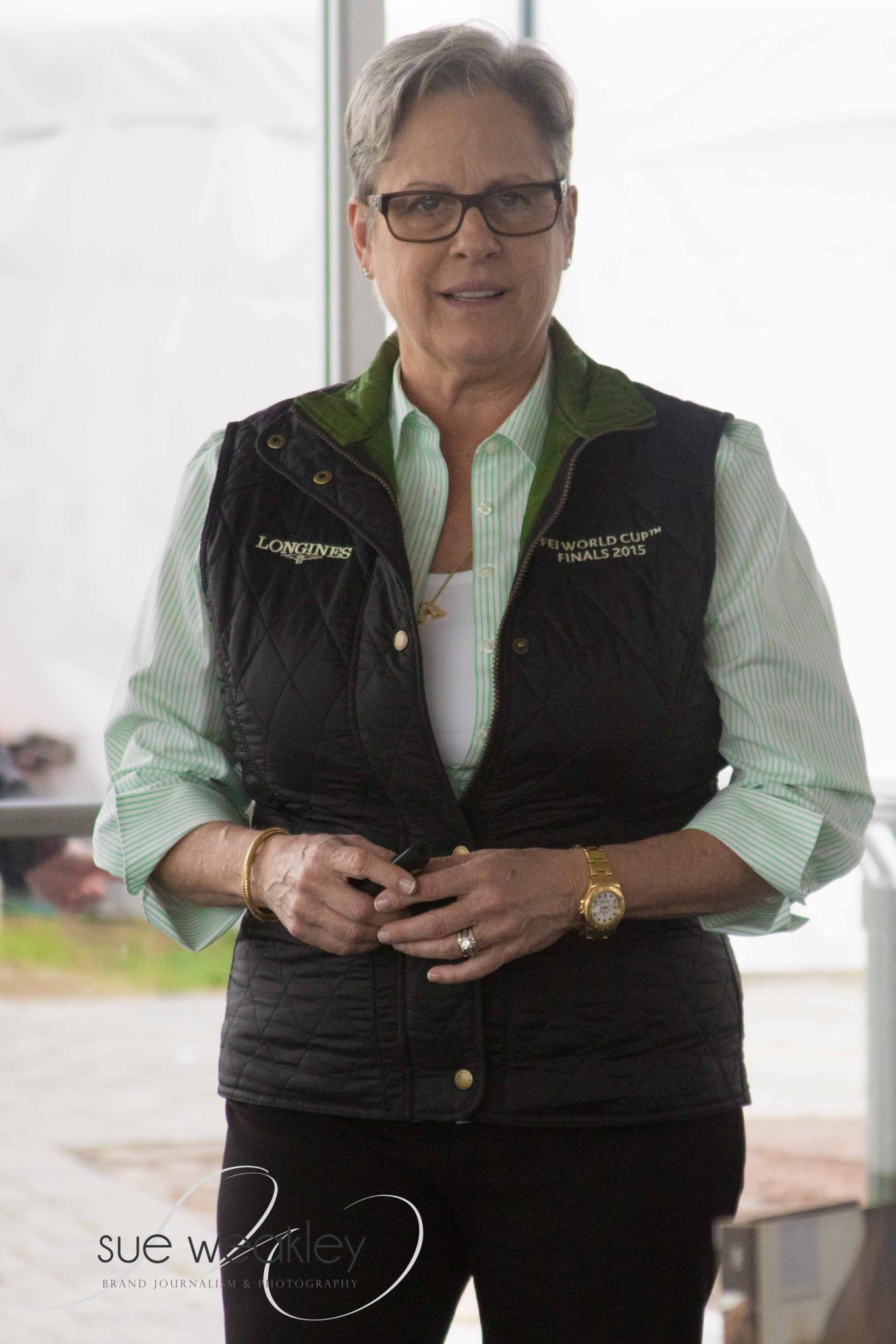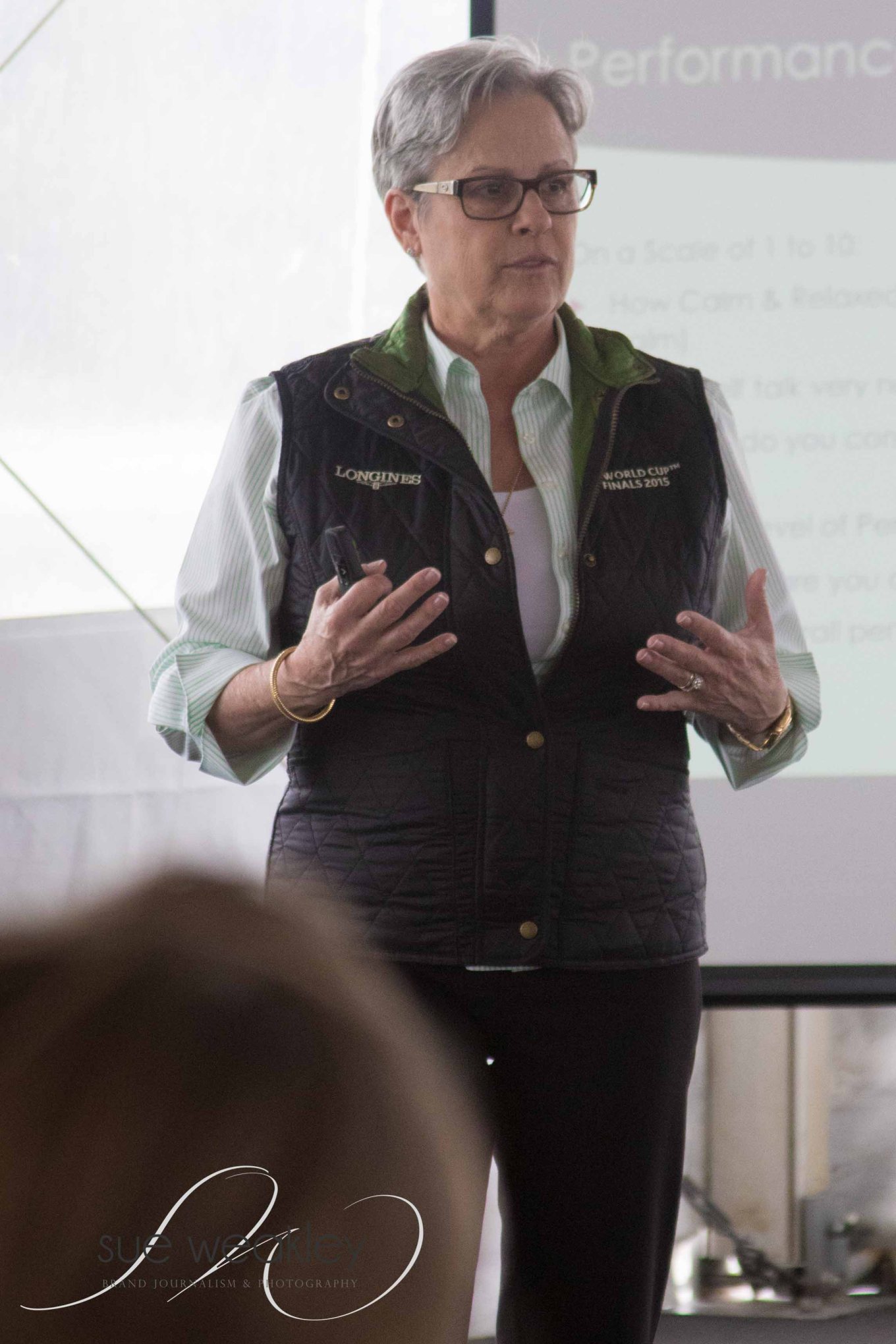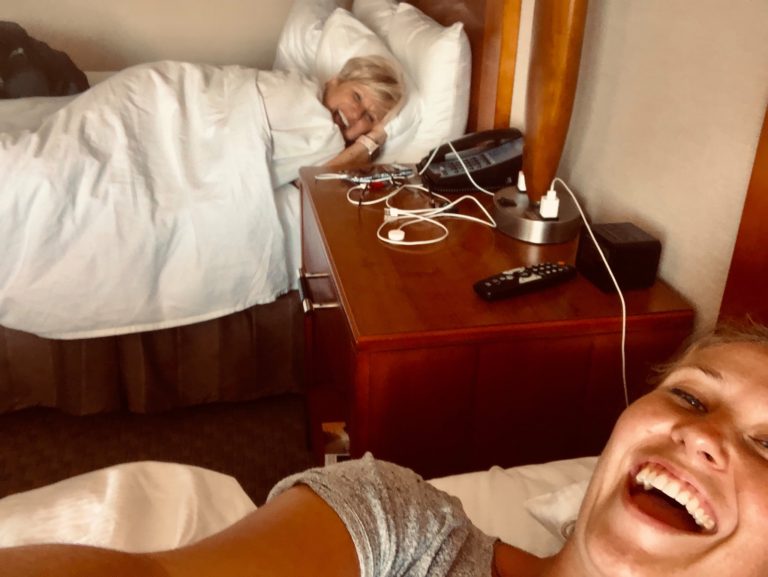Train Your Brain with Laura King

Laura King, Certified Hypnotherapist, Neuro-Linguistic Programmer and Life Coach, boasts 25 years of experience helping high-performance athletes excel, so when dressage superstar Robert Dover asked her to speak to the participants and auditors at the 2016 Robert Horsemastership Clinic (RDHC), she jumped at the chance.
The clinic is designed to help identify and train promising young dressage athletes to help them advance up the pipeline to join Team USA in claiming medals and ribbons. The five-days of the January event were jam-packed with lessons and high-powered speakers to help the clinic goers learn from some of the top names in the business.
“I love what I do,” King explained. “I use hypnosis to help people and to help their performance. It works! Hypnosis is how I live my life. I practice it. I use it. I like being happy all the time.”
King said that the brain does everything from signaling you to breathe to learning a dressage test and, when you ride, you do so both consciously and unconsciously. “You have to have a thought before you can get nervous,” she said. “Why would you not control your thoughts to increase your power to win?”
As the author of a variety of books including one by the same name, “The Power to Win,” she outlined the six keys to winning: the ability to control your relaxation, performance, anxiety, concentration and self-talk.
She told the students gathered under the VIP pavilion at the Adequan Global Dressage Festival show grounds in Wellington, Florida, that stress blocks the brain’s functioning ability and one way to reduce stress is to think of goals as something you intend to achieve and to write them down. Include goals for the week, the season and the year, but aim higher than you dared or “raise the lid.” And, instead of looking at a final score you want to achieve, break your goals into doable and likeable pieces and then determine your personal timeline. Don’t call them problems or issues; call them challenges. Make your goals positive and commit them to paper so your brain can “see” what it wants to accomplish.
“Your subconscious mind doesn’t register negative thoughts,” she said, explaining that the subconscious can’t understand negative words. “The subconscious mind is literal. It has zero rationalization ability. The conscious mind is analytical and rational.” So, when you create your goals or engage in self-talk, instead of saying things like “Don’t forget to breathe,” say, “I am confident and relaxed and I breathe throughout my test.”
“You are what you think,” she said. “A thought creates a physical reaction; your imagination is stronger than knowledge. Use hypnosis to make molehills out of mountains. We change the routine and thought process to lower, minimize and release the fear. Rewrite the script in your brain. Visualize and activate your brain for solutions to overcome your fear.”

One way she said to rewrite the script is to choose a role model to mimic. Watch videos. Visualize before you go to sleep. Look at something you want to do, read something you want to accomplish and then go to sleep. “You are what you think,” she said. “A thought creates a physical reaction. Your imagination is stronger than knowledge. ‘I am’ are the two most powerful words in the English language. Whatever you attach to the ‘I am,’ you will become.”
King explained that your brain has mirror neurons that act like “Monkey see, monkey do.” By using visualization and by using role modeling, you are creating mirror neurons in your brain that learn how to do each movement correctly. You are creating a pathway of how your brain functions, like a blueprint or a roadmap. You are using the theatre of the mind.”
The triggering of the correct response is anchoring. Just like a red light is an anchor to tell you to stop, there are many anchors for riding, like what side of the horse you mount from. You can change those anchors. By telling yourself, “Every time I get into the saddle, I breathe,” you are putting things into a new context by reframing them. “You’re modeling and your brain’s neurons pick up the mirror neurons and mimic them,” she said. “Your brain will automatically start doing it.”
She gave the audience some tips to help them train their brains for success:
- A pre-ride routine is a must for consistency. This includes knowing the test, and visualizing doing it while remembering to breathe. Watch a video of your favorite pro doing it correctly. Practice the test and breathe while practicing. Listen to positive MP3s King has available to help performance. Listen at least 10-15 times to each one to engrain them into your subconscious. An ideal time to listen is when to go to bed. Your subconscious mind is open 30 minutes after you go to sleep and absorbs everything you hear. Find the MP3s at www.laurakinghypnosis.com/equestrian.
- Create a show schedule and include your desired outcomes. Break down the test and determine which movements require the most attention. Ask your trainer for help in achieving those outcomes and put them on a calendar to enforce your brain’s roadmap. Be consistent.

- On show day, avoid negative people. Breathe. Sit in the saddle and get comfortable and in the correct position before going forward. And breathe.
- Have fun. Ride like you are coming to enjoy your rides and shows.
- Avoid driving or doing some other activity that requires brainpower while talking on the phone. Whatever the person says to you, whether positive or negative, will travel straight to your subconscious while your brain is otherwise engaged.
- Engage in positive self-talk. Say phrases to yourself like, “I am a confident focused rider,” or “I have natural athletic ability,” or “I am grateful for every day that I ride.”
As King wrapped up her talk, Dover chimed in to say how much she has helped him and reminded the riders of their lessons with him during the clinic when he said the exact same things about visualization.

“In your mind, you should be seeing your movie and it’s the grandest version of yourself you can possibly imagine,” he said. “You imagine yourself as Charlotte Dujardin or Edward Gal, and you believe so hard that that’s the role you are playing, then that’s what you become. If you are thinking negative thoughts, those negative thoughts become your reality.”
To learn more about Laura King or to check out her books, CDs and MP3s, go to laurakinghypnois.com. Contact her via email at laurakingcoaching@gmail.com or 561.841.7603 or go to summitperformance.net.


